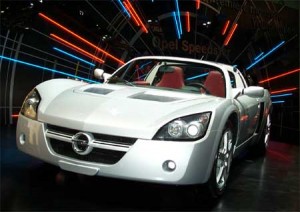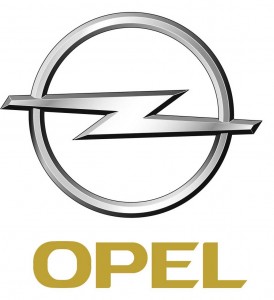
What role Opel will now play in GM's effort to form a truly global empire is uncertain.
With weakened U.S. auto giant General Motors now coming down to the wire with an anticipated bankruptcy filing on Monday, the automaker has agreed to sell a majority stake in its ailing European Opel subsidiary to a consortium led by Canadian super-supplier Magna International.
The deal came hours after the other bidder in the battle for Opel, Italian automaker Fiat SpA, decided to boycott a meeting with German government leaders and others involved in the Opel rescue effort. The government had pressured GM to agree to the sale before it would approve a bridge loan worth $2.1 billion. The Germans will also provide another $420 million in short-term assistance, announced Finance Minister Peer Steinbrueck, to keep Opel running while the details of the sale are finalized.
When GM first announced it would need assistance to save Opel, it said it would be willing to relinquish a minority stake in the critical subsidiary. But it later acknowledged it would be willing to become a minority shareholder, and the final deal will give Magna 20% of Opel and GM’s other European assets, while the Russian Sberbank will acquire another 35%, the same share remaining for GM. Opel employees will control a 10% stake.
 “Opel has been given prospects for the future,” said German Chancellor Angela Merkel after the deal was completed. “Now the work for Opel and for Magna … really begins.” Merkel had repeatedly said that the German government was neither interested nor willing to take a stake of its own in Opel – unlike the approach taken by the Obama Administration, which expects to wind up with 70% of the European unit’s parent, General Motors.
“Opel has been given prospects for the future,” said German Chancellor Angela Merkel after the deal was completed. “Now the work for Opel and for Magna … really begins.” Merkel had repeatedly said that the German government was neither interested nor willing to take a stake of its own in Opel – unlike the approach taken by the Obama Administration, which expects to wind up with 70% of the European unit’s parent, General Motors.

The sale of Opel came as bidder Fiat SpA boycotted a meeting with senior German government officials overseeing the sale.
The deal is expected to take about five weeks to finalize, according to Magna co-CEO Sigfried Wolf. The Canadian supplier was founded by an Austrian immigrant, Frank Stronach, and his family still maintains a major grip on its management. Magna has long sought a larger role in the automotive world than the typical parts manufacturer. It currently operates a manufacturing facility, in Graz, Austria, that produces vehicles for numerous automakers, including both Chrysler and Mercedes-Benz parent Daimler AG.
It remains unclear whether Magna will use its stake in Opel to partner with other makers, or perhaps even find a way to establish some sort of branding of its own as an independent automaker. That would be extraordinarily risky, analysts warn, considering the highly competitive nature of a business that is also suffering from its worst global slump in decades.
The other question left unanswered is how the sale will change Opel’s relationship with General Motors. Adam Opel GmbH was founded in January 1863 and began making automobiles in 1899. It was acquired by GM in 1929, though briefly nationalized by the Nazis, until GM regained control in 1948.
Ironically, Opel was, until recently, expected to take an even more significant role in General Motors’ global operations. When Vice Chairman Bob Lutz joined GM, in 2000, the company functioned as, “a vast empire that wasn’t running as a single company but, rather, as a loose federation, I’ve been trying to turn it into a cohesive entity. And that has worked really well.”
The new Chevrolet Cruze small car, which will debut around the world in 2010, was the prototype of a new, globally-united product development system. Meanwhile, Opel was playing a key role in developing many future U.S. models, such as the next-generation Chevrolet Malibu.
In a conversation prior to the conclusion of the Magna acquisition, Lutz suggested that, “Our operating assumption is that whoever (the new) partner is, will be vitally interested in being a central part of the GM product development system. It will probably result in some complicated discussions and it’s probably going to be more administratively difficult.”
Like most senior German government officials, and Opel’s labor unions, GM appeared to favor Magna among the three bidders that emerged during the past week. Insiders made no secret of their concerns about what might happen if Fiat had gained the upper hand. The Italian maker’s CEO Sergio Marchionne was promoting a grand global empire that would have included not only Opel but the bankrupt U.S. maker Chrysler. That, GM insiders told TheDetroitBureau.com, would have made it far less certain, and certainly far more difficult, for Opel to continue serving as a product development center for General Motors.
While Merkel and other government leaders praised the Magna move, there were some concerns raised, notably by Germany Economy Minister Karl-Theodor zu Guttenberg, who described the deal as risky, and said, in a statement, that “I have a different risk assessment than my colleagues participating in the Opel negotiations.”
While Opel is considered the prize in the deal, Magna and Sberbank will also gain control of GM’s smaller U.K, subsidiary, Vauxhaul, which larger serves as the British marketer of right-hand-drive Opel vehicles.
